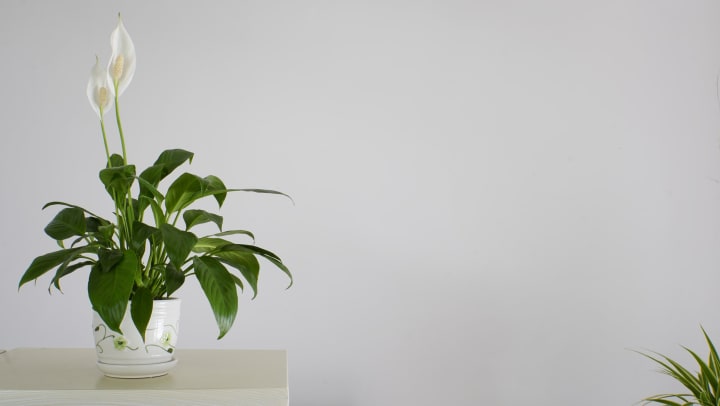Maybe you’ve noticed the abundance of peace lilies in stores lately. Or perhaps someone gave one to you as a gift. Having one in your home is incredibly beneficial thanks to its air purifying abilities, low maintenance needs, and its ability to remove mold spores from the air.
Though they might look complicated, they are actually quite easy to care for. Here are a few tips for keeping yours in good health.
Keep Them Warm
Peace lilies are tropical evergreen plants that grow on moist forest floors, taking whatever sunlight they can capture through the canopy. If you keep yours near a window to give it as much light as possible, be sure to watch the weather reports and move it away from the window when temperatures drop. Also be sure to keep it out of the path of air conditioner vents.
Be Conservative with Light
While peace lilies do need a good amount of light in order to produce those beautiful white flowers, keep in mind that in nature, they are found on forest floors, which means they don’t get direct sunlight all day long. Avoid placing these plants in south-facing windows, and make sure that other windows don’t provide light that is too strong. To accomplish this, check the soil regularly to make sure your lily is not drying out.
Water Consistently
Remember that these plants are tropical, which means they like humidity and prefer moist soil. Make sure to check the soil regularly and watch out for droopy leaves – that’s a telltale sign of a thirsty peace lily.
Keep Them Clean
These plants with their broad leaves tend to attract a lot of dust – which means they need to be wiped down with a damp cloth from time to time to keep them healthy. Dust can impede the photosynthesis process, so it’s important to keep them clean.
Put Your Peace Lily in a Safe Place
Peace lilies are mildly toxic, so be sure to keep them out of reach of pets and children. It’s probably not the best choice for a home with cats in it, as it can be challenging to keep anything out of their nimble reach. These are not true lilies, however, and therefore are much safer.
Follow The Palmer blog for more tips on keeping your houseplants beautiful and healthy.


